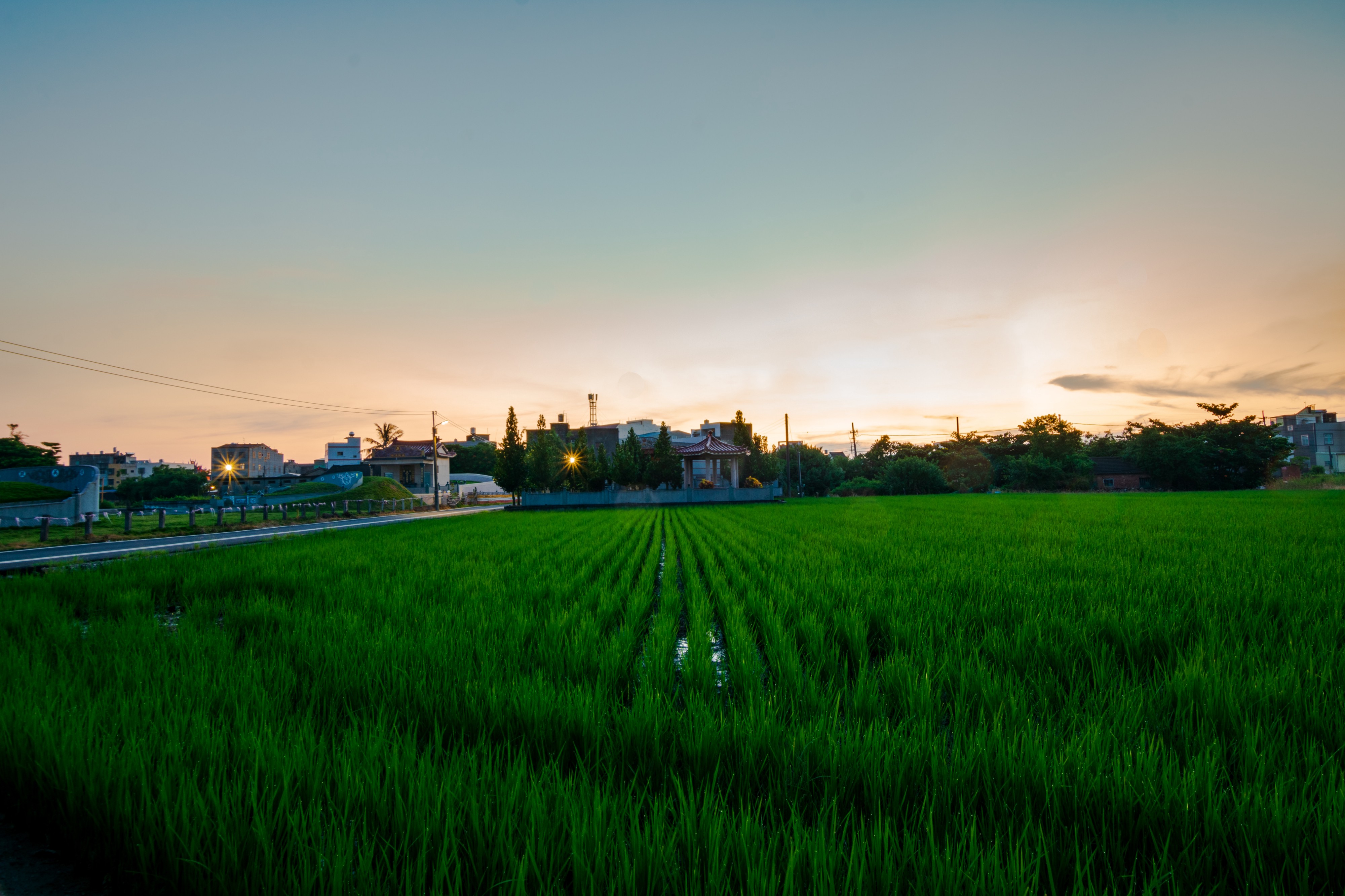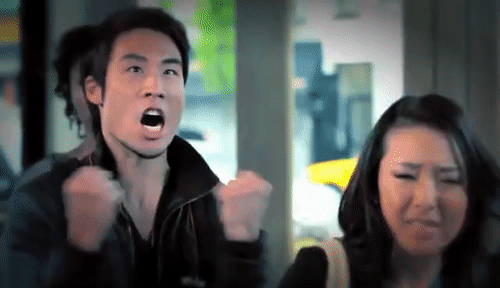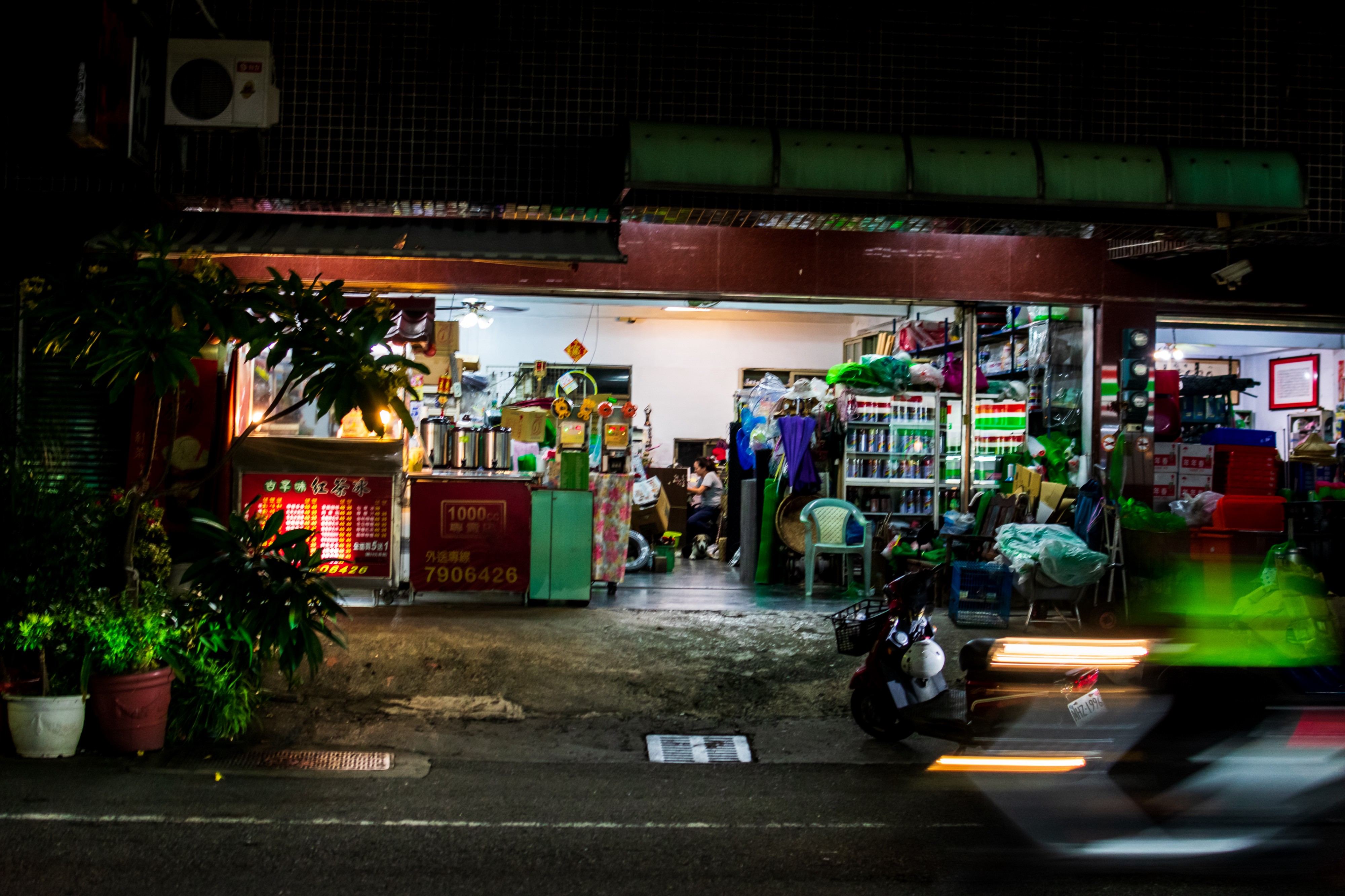
Rice fields right outside 宜梧 (YiWu) Junior High School during sunset (taken on my Nikon D3400)
“来吃饭了!(literally, ‘come eat!’ but interpreted as ‘food’s ready!’ )” rang through the hallways of my house, emanating from the kitchen. This was a daily occurrence, after a long day of school or work, signaling that dinner, which my 奶奶 (grandma) had lovingly prepared, was ready. Growing up in a Chinese American household, I was lucky to have my grandma live with us; this forced me to learn Mandarin from a young age because she couldn’t speak English. As a result, I almost exclusively spoke Chinese at home, and going to Chinese school every Sunday was a natural progression of that beginning. However, as I passed through elementary school, middle school, and then high school, my academics became increasingly pressing and maintaining my Chinese culture and heritage became less and less of a priority. At some point, I suddenly switched to speaking English with my parents and focused more time on regular school requirements than those for Chinese school. When my grandma passed in high school, it became even harder since I lost my practice partner, and I even lost the simple connection of eating traditional home cooking every night. I was, in a sense, lost in my relationship with my heritage.
For context, I recently went and lived in Taiwan for a month as a volunteer English teacher. I wrote a piece focusing specifically on the teaching part last week, which you can find here. In this post, I focus on my experience with actually living in Taiwan, interacting with the people there, and how those affected my relationship and perspective of my culture.
Reconnecting with Culture & Community

(it doesn’t just mean watching Wong Fu videos)
I’ve always had a bit of a complicated relationship with my heritage. My grandparents grew up and built their lives in China, until they were forced to leave behind most of their belongings and trek across the country and flee to Taiwan during the Chinese Communist Revolution. Being the youngest children, both my parents were born in Taiwan and later moved to the U.S. for studies, where they met and where I was subsequently born (yay!). Even though the move changed nothing about my family ethnically (I’m Han Chinese as are most of the people in China and Taiwan; although, there is a more complicated issue here that I don’t have room to address on the groups that are considered native to Taiwan), the artificial division of the two countries, caused by Taiwan’s complicated history and current geopolitical deadlock with China, binds me in a tricky balancing act with which “side” I identify more with. Am I Chinese, or am I Taiwanese? And how does being American play into all of that? I’ve never been able to answer those types of questions confidently because they not only force a binary answer but also pit the two as opposite extremes. The fact that my family was only in Taiwan for one generation and they came in the same wave as the KMT (the leaders of the Republic of China that lead the exodus to Taiwan from China) whose early rule is controversial for the treatment of the Taiwanese locals makes it even more complicated. Diving into the history and the context for the current state of things has certainly helped me better understand how nuanced identity can be, but it hasn’t gotten me any closer to an answer to the question I sought to answer.
Having the opportunity to go to Taiwan with the teaching program, I hoped to explore the subtleties of Taiwanese culture and society and learn how to reconcile my findings with my experience with American culture. To say I was nervous going in is a severe understatement. What if they think I’m a fake? In the months leading up the program, I frantically tried to shortcut my way back into the culture I had lost, starting with the language. With the imagined scene of freezing upon trying to speak in Taiwan lingering in the back of my mind, I downloaded Duolingo and HelloTalk to jump-start my Chinese and forced myself to practice regularly, even if it meant reaching out to random people on HelloTalk to start a conversation in a foreign language. I didn’t even know how to frame my expectations because of how unsure and uneasy I felt. So, I tried to just take it in stride: find what I find and learn what I learn. When I first arrived at the school in one of those huge, clunky tour buses. It barely fit through the winding alleys that ended at the four-story complex situated beside vast swaths of rice fields, shimmering with the sunset.

tiny shop walking distance from the school across from our only 7–11
As we were swept off the bus and welcomed in by cheerful teachers and volunteers, I was surprised to be greeted by a refreshing breeze (a great contrast to the humid 90˚F climate). The entire school (besides individual rooms) was open-air, granting visitors an immediate view of the greenery and running track in the back. Starting then, it was a rollercoaster of two weeks: from dining with locals on freshly caught shrimp or attempting to catch slimy eels in a pool of mud from chasing the sunset at picturesque lakes and beaches to systematically trying the best of every local cuisine offered (seriously, I tried a new thing for breakfast every day; that’s how much variety there is) and laughing a whole lot along the way. From that first day, it truly felt like we were treated as family.
Over those two weeks, I noticed a few patterns emerging. Taiwanese people exemplify a culture of hospitality. I was welcomed into countless locals' homes and treated to food and beverages all for the sake of showing off their way of life and their trade. Hierarchies are usually strictly followed—traditions often dictate how things should be, although this is starting to change with the general trend towards globalization and modernization. This manifests itself in structural practices ranging from age seniority dictating level of authority to working completely in the Microsoft suite (I was shocked to find even .PDF is not widely accepted, at least in the school system in my experience). There is vast optionality for consumers, whether it be the endless rows of stalls, selling all kinds of refreshments, household goods, electronics, and random knick knacks or the arcades, featuring numerous clever games for winning assorted prizes ranging from fake designer merchandise to figurines and plushes. This level of optionality is the only reason I was able to try a new item for breakfast every day and not exhaust all the choices because every menu item could have several branches, combining the base with different add-ons. This availability of choice feeds into and is sourced in part from the principle of no waste. Every item must be fully exhausted of its value before it can be discarded. Every shop you visit (including the one in the picture above), you’ll find stacks of boxes containing all manner of goods, biding their time for their full potential to be realized. The focus is skewed towards functionality and clutter than simplicity and minimalism. And, of course, tea is the Taiwanese equivalent of nectar for Greek gods; you’ll find tea at every meal, even all the fast food joints.
Looking back, no prior expectations could have captured the depth of what I found and experienced. Inspired to embrace my inner child, even on the cusp of transitioning to “adult” life, and embody a culture of welcoming strangers as family in an increasingly distrusting and pessimistic world are both principles I hope to carry long into the future. As for the question of my identity, to be honest, I still don’t know for sure. At first, the fact that I was one of the few people, of the other teaching volunteers, without any physical familial ties left in Taiwan made me feel like I was missing something, something essential to being Taiwanese. But now, I feel that cultural identify, both where and what you identify with, is a heuristic of where you feel at “home” and what you value, and your heritage, by seeding you with certain traditions and beliefs, acts as a pre-defined shortcut to that end. After this experience I certainly feel a strong bond to my newfound family in Taiwan (and all the food and cultural quirks that come with it), but I also feel a new sense of responsibility to explore the ancient Chinese cultural traditions (like Chinese temple culture) that I saw in Taiwan. Having been immersed in the environment of a foreign culture for a prolonged period, I also came to a better understanding about the differences with American values and how that plays into my identity. The difference that jumps out immediately stems from a focus on the individual as opposed to the collective. With that comes benefits, like empowerment to break from the status quo and forge your own path to success, and downsides, like inadvertently promoting zero-sum, winner-takes-all, and everyone-for-themselves mindsets. As a result, I’ve developed a determination to strive for a healthy tension between those two extremes: a way to leverage both the chutzpah to break from the norm and the tenacious optimism that you can lift everyone up doing so.
Although I didn’t discover a straightforward answer to what my relationship with my culture should be, my renewed motivation to trudge down the long path towards a fleshed out identity (and the principles that make it up), along with the feeling that each new cultural insight fills a gap in my metaphysical self, hopefully means I’m going in the right direction.
💡❓I’m curious to hear if others have had similar explorations or struggles with their identity or heritage. Would love to discuss and explore these questions together! If you haven’t thought about it, and you’re in the mood for some searching—here are a few guiding questions that could help you get started:
What does your heritage mean to you? What does culture mean to you? Where do you most feel a sense of belonging and how does your heritage play into your identity as a whole? And how has those cultures affected what you value?
Maintaining the Momentum
After moving out to San Francisco for work a couple of months ago, my aforementioned journey quickly turned into an uphill battle. Without the constant practice of having to order breakfast and make my way around life in Mandarin, my language skills have been steadily deteriorating, and devoid of the constant reminders from my environment about the importance of learning more about my culture, the fire for my exploration has dwindled. However, an uphill battle is not unwinnable, and the challenge, in some sense, speaks to the value of the ride. In terms of concrete paths forward, I’ve been calling my parents more and having conversations strictly in Mandarin, and I’ve made plans to attend Chinese Toastmaster meet-ups. I’ve also pushed myself to have the courage to use Chinese whenever the opportunity arises, whether that’s getting to know my new barber (an adorable elderly couple) or simply ordering some delicious food.
Although nothing will truly be able to replicate the experience of my day-to-day living in the Taiwan countryside, I’m grateful that it gave me the perspective to make seeking out experiences that work this cultural muscle a priority and excited to see how my perspective on my identity evolves.
If you haven’t seen it, check out part 1 here.